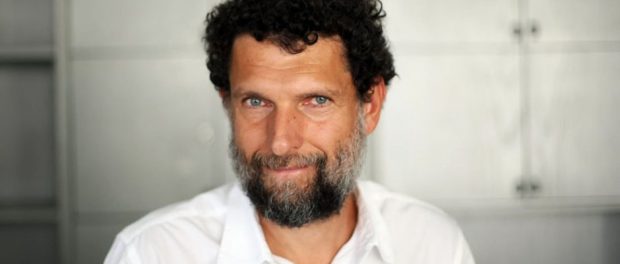ISTANBUL (A.W.)—Public outcry over the arrest of prominent businessman and civil society activist Osman Kavala continues to grow, as Turkish police provide little to no information surrounding the detention.

According to various reports, Turkish police detained Kavala at Istanbul’s Ataturk International Airport on the evening of Oct. 18. Kavala, the chairman of the nonprofit Anadolu Kültür, was reportedly taken to Istanbul’s counterterrorism police department upon his return to the city from Gaziantep (Ayntep).
The Turkish T24 news outlet cited Kavala’s lawyer as saying Kavala had returned from a meeting from Gaziantep after an order was issued for him to be detained.
According to some reports, police have also seized computers from the offices of Anadolu Kültür—an organization that promotes the art and culture of the region.
There has been much public discontent since the news of Kavala’s arrest was made public on Wednesday evening. The Foreign Ministry of France said on Thursday it was concerned about Kavala’s arrest, calling him “one of the most important and respected figures of the Turkish cultural scene and of civil society.” Foreign Ministry spokesperson Agnes Romatet-Espagne told reporters that France will be “very attentive” to developments in the case.
U.S.-based independent watchdog Freedom House’s director of Eurasia programs, Marc Behrendt, called Kavala’s arrest “a significant escalation in the Turkish government’s assault on civil society and media.”
Behrendt noted that Turkish authorities detained Kavala a few days before the first court hearing on trumped-up criminal charges against representatives of local civil society organizations and Amnesty International’s Turkey branch, and called the move “another signal that Turkey is targeting activists for holding opinions critical of the government.”
“Kavala should be released immediately and the charges against him made clear. The European Union and the government of the United States should publicly press for Kavala’s release,” Behrendt added.
Sevan Nişanyan, a Turkish-Armenian intellectual, travel writer, entrepreneur, and researcher who escaped prison and fled Turkey on July 14, took to social media to voice his displeasure regarding the arrest and harshly criticized Turkish President Recep Tayyip Erdogan’s regime for their human rights abuses. “Their intentions are clear,” he noted, saying that those who wish to express their love of culture, freedom, and pluralism in Turkey are silenced by authorities.
Member of European Parliament and Turkey Rapporteur Kati Piri tweeted that she was disturbed by the arrest and said she will propose to launch urgent call for Kavala’s release in the European Parliament. Taner Akçam, chair of Armenian Genocide Studies at Clark University, called the arrest a “very disturbing development” on Facebook.
Kavala, a longtime supporter of Armenian Genocide recognition and Turkish-Armenian reconciliation, visited Yerevan’s Armenian Genocide Institute and Museum on April 24, 2016. Speaking to Yerevan-based News.am, he had called Turkish society’s changing attitudes toward Armenians a slow, but moving process. “First of all, there has to be a sincere intention to look at history, to look at what had happened, to open up the archives properly, and to have a very sincere dialogue with the Armenians. Fortunately, there are some steps, but we still can’t see that at the political level,” he had said at the time.
Kavala was also present at the reopening of Diyarbakir’s Surp Giragos Church in 2011. The church had been recently renovated by the Surp Giragos Armenian Foundation, with the support of the local Kurdish-controlled municipality of the time.
Speaking to the Armenian Weekly, Kavala had expressed hope that the massive reconstruction and other initiatives in Diyarbakir would “have an impact beyond the city, on the national policy.”
During the past two tumultuous years, the church has been desecrated and largely damaged, as seen in a set of secretly taken photographs published by the Armenian Weekly in September.
Born in 1957, Kavala studied economics at the University of Manchester. In 1982, he took over the management of the Kavala Companies founded by his late father.
He was active in the establishment of a number of business organizations in Turkey, including Turkish-Polish and Turkish-Greek business councils and the Association of Tourism Investors.
Kavala has served on the boards of TURSAK (Turkish Audiovisual Cinema Foundation), TEMA (Foundation to Fight Soil Erosion), Helsinki Citizens Association, TESEV (Turkish Economic and Social Studies Foundation), and Thessaloniki-based Center for Democracy and Reconciliation in the Southeast Europe.
He has also taken part in civil society organizations promoting peace and understanding between Turkey and Greece and has participated in a number of civil initiatives for the protection of human rights and a democratic solution to Kurdish issues in Turkey.


We need people like Osman Kavala’s to improve the world